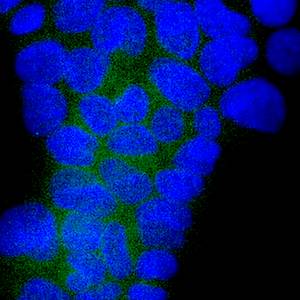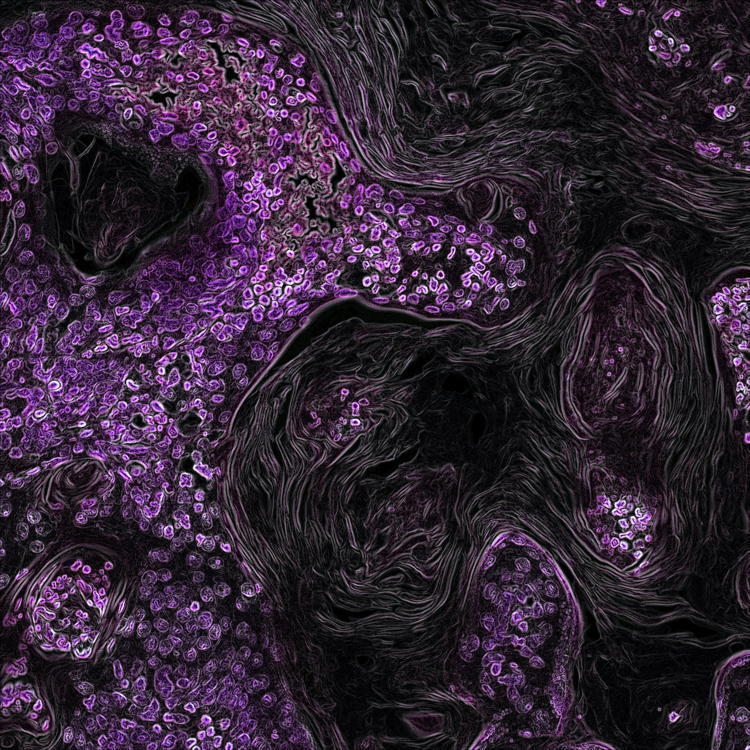Expression and role of cocaine-amphetamine regulated transcript (CART) in the proliferation of biliary epithelium

Accepted: 25 September 2023
HTML: 8
All claims expressed in this article are solely those of the authors and do not necessarily represent those of their affiliated organizations, or those of the publisher, the editors and the reviewers. Any product that may be evaluated in this article or claim that may be made by its manufacturer is not guaranteed or endorsed by the publisher.
Authors
Cholangiocytes, the epithelial cells that line the biliary tree, can proliferate under the stimulation of several factors through both autocrine and paracrine pathways. The cocaine-amphetamine-regulated-transcript (CART) peptide has several physiological functions, and it is widely expressed in several organs. CART increases the survival of hippocampal neurons by upregulating brain-derived neurotrophic factor (BDNF), whose expression has been correlated to the proliferation rate of cholangiocytes. In the present study, we aimed to evaluate the expression of CART and its role in modulating cholangiocyte proliferation in healthy and bile duct ligated (BDL) rats in vivo, as well as in cultured normal rat cholangiocytes (NRC) in vitro. Liver samples from both healthy and BDL (1 week) rats, were analyzed by immunohistochemistry and immunofluorescence for CART, CK19, TrkB and p75NTR BDNF receptors. PCNA staining was used to evaluate the proliferation of the cholangiocytes, whereas TUNEL assay was used to evaluate biliary apoptosis. NRC treated or not with CART were used to confirm the role of CART on cholangiocytes proliferation and the secretion of BDNF. Cholangiocytes proliferation, apoptosis, CART and TrkB expression were increased in BDL rats, compared to control rats. We found a higher expression of TrkB and p75NTR, which could be correlated with the proliferation rate of biliary tree during BDL. The in vitro study demonstrated increased BDNF secretion by NRC after treatment with CART compared with control cells. As previously reported, proliferating cholangiocytes acquire a neuroendocrine phenotype, modulated by several factors, including neurotrophins. Accordingly, CART may play a key role in the remodeling of biliary epithelium during cholestasis by modulating the secretion of BDNF.
Ethics Approval
All animal experiments were performed following the regulations of the protocols approved by Baylor Scott & White Institutional Animal Care and Use CommitteeSupporting Agencies
Sapienza University of Rome, ItalyHow to Cite

This work is licensed under a Creative Commons Attribution-NonCommercial 4.0 International License.
PAGEPress has chosen to apply the Creative Commons Attribution NonCommercial 4.0 International License (CC BY-NC 4.0) to all manuscripts to be published.
Similar Articles
- M.G. Bottone, G. Santin, C. Soldani, P. Veneroni, A.I. Scovassi, C. Alpini, Intracellular distribution of Tankyrases as detected by multicolor immunofluorescence techniques , European Journal of Histochemistry: Vol. 56 No. 1 (2012)
- Zhixiong Wang, Qian Liu, Na Risu, Jiayu Fu, Yan Zou, Jiaxing Tang, Long Li, Hui Liu, Guomin Zhou, Xuekai Zhu, Galunisertib enhances chimeric antigen receptor-modified T cell function , European Journal of Histochemistry: Vol. 64 No. s2 (2020): Special Collection on Stem Cells and Regenerative Medicine
- Ennio Pannese, Quantitative, structural and molecular changes in neuroglia of aging mammals: A review , European Journal of Histochemistry: Vol. 65 No. s1 (2021): Special Collection on Advances in Neuromorphology in Health and Disease
- JE Nielsen, MA Hansen, M Jørgensen, Germ cell differentiation-dependent and stage-specific expression of LANCL1 in rodent testis , European Journal of Histochemistry: Vol. 47 No. 3 (2003)
You may also start an advanced similarity search for this article.

 https://doi.org/10.4081/ejh.2023.3846
https://doi.org/10.4081/ejh.2023.3846










